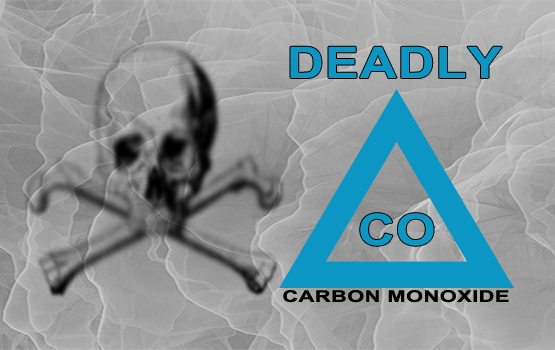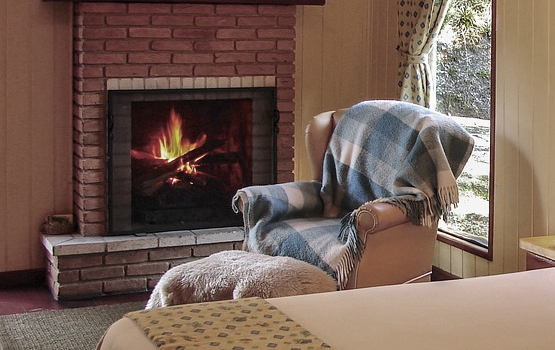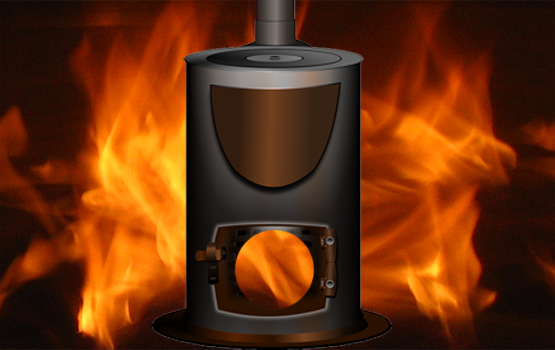Prevent Carbon Monoxide Poisoning
What you can't see, smell or taste can harm you and your family. Carbon monoxide (CO) is poisonous and every household that has fuel-burning appliances needs to be awere of the risks and learn how to prevent it.
Prevention is the Key to Avoiding Carbon Monoxide Poisoning
DO have your fuel-burning appliances -- including oil and gas furnaces, gas water heaters, gas ranges and ovens, gas dryers, gas or kerosene space heaters, fireplaces, and wood stoves -- inspected by a trained professional at the beginning of every heating season. Make certain that the flues and chimneys are connected, in good condition, and not blocked.
DO choose appliances that vent their fumes to the outside whenever possible, have them properly installed, and maintain them according to manufacturers' instructions.
DO read and follow all of the instructions that accompany any fuel burning device. If you cannot avoid using an unvented gas or kerosene space heater, carefully follow the cautions that come with the device. Use the proper fuel and keep doors to the rest of the house open. Crack a window to ensure enough air for ventilation and proper fuel burning.
DON'T idle the car in a garage -- even if the garage door to the outside is open. Fumes can build up very quickly in the garage and living area of your home.
DON'T use a gas oven to heat your home, even for a short time.
DON'T ever use a charcoal grill indoors -- even in a fireplace.
DON'T sleep in any room with an unvented gas or kerosene space heater.
DON'T use any gasoline-powered engines (mowers, weed trimmers, snow blowers, chain saws, small engines or generators) in enclosed spaces.
DON'T ignore symptoms, particularly if more than one person is feeling them. You could lose consciousness and die if you do nothing.
A Few Words About CO Detectors
Carbon Monoxide Detectors are widely available in stores and you may want to consider buying one as a back-up -- BUT NOT AS A REPLACEMENT for proper use and maintenance of your fuel burning appliances. However, it is important for you to know that the technology of CO detectors is still developing, that there are several types on the market, and that they are not generally considered to be as reliable as the smoke detectors found in homes today. Some CO detectors have been laboratory-tested, and their performance varied. Some performed well, others failed to alarm even at very high CO levels, and still others alarmed even at very low levels that don't pose any immediate health risk. And unlike a smoke detector, where you can easily confirm the cause of the alarm, CO is invisible and odorless, so it's harder to tell if an alarm is false or a real emergency.
So What's a Consumer to Do?
First, don't let buying a CO detector lull you into a false sense of security. Preventing CO from becoming a problem in your home is better than relying on an alarm. Follow the checklist of DOs and DON’Ts above. Second, if you shop for a CO detector, do some research on features and don't select solely on the basis of cost. Non-governmental organizations such as Consumers Union (publisher of Consumer Reports), the American Gas Association, and Underwriters Laboratories (UL) can help you make an informed decision. Look for UL certification on any detector you purchase. Carefully follow manufacturers’ instructions for its placement, use, and maintenance.
If the CO detector alarm goes off:
- Make sure it is your CO detector and not your smoke detector.
- Check to see if any member of the household is experiencing symptoms of poisoning.
- If they are, get them out of the house immediately and seek medical attention.
- Tell the doctor that you suspect CO poisoning.
- If no one is feeling symptoms, ventilate the home with fresh air, turn off all potential sources of CO -- your oil or gas furnace, gas water heater, gas range and oven, gas dryer, gas or kerosene space heater and any vehicle or small engine.
- Have a qualified technician inspect your fuel-burning appliances and chimneys to make sure they are operating correctly and that there is nothing blocking the fumes from being vented out of the house.
Note: CO alarms detect CO only. If your household use natural gas as a fuel, you will need a natural gas alarm to detect a natural gas leak. You can also use a combination CO/natural gas alarm to detect both problems.
Learn more about Carbon Monoxide Poisoning and protect yourself and your family.
RELATED LINKS:
- FREE Reports & Articles
- Your Heating System
- Improving Heating Efficiency
- Make the Necessary Improvements
Protect Yourself
Every year have the fuel-burning equipment in your home, such as your furnace and fireplace, inspected and maintained by a Tehnical Standards ans Safety Authority (TSSA) registered heating contractor.
If your home has a fuel-burning appliance, fireplace or attached garage, you're legally required to install a CO alarm near all bedrooms.
Read more...
Heating Tips
Programmable thermostats can help you cat your energy bill by 10 percent or more. They can be set to automatically turn down the temperature for any number of hours during a day or night, either when you're not home or when you're sleeping. They are now cheaper than ever, with models starting under $30. Also, make sure your thermostat is on the right wall.
Read more...
Your Heating System
The efficiency of a heating system depends on the amount of fuel consumed to meet heating needs. Using less fuel means your system has increased its energy efficiency. One way to maximize output using the least amount of fuel is to reduce air leakage. Before deciding to replace or upgrade your present heating system you will have to consider how much of your present system can be saved.
Read more...


